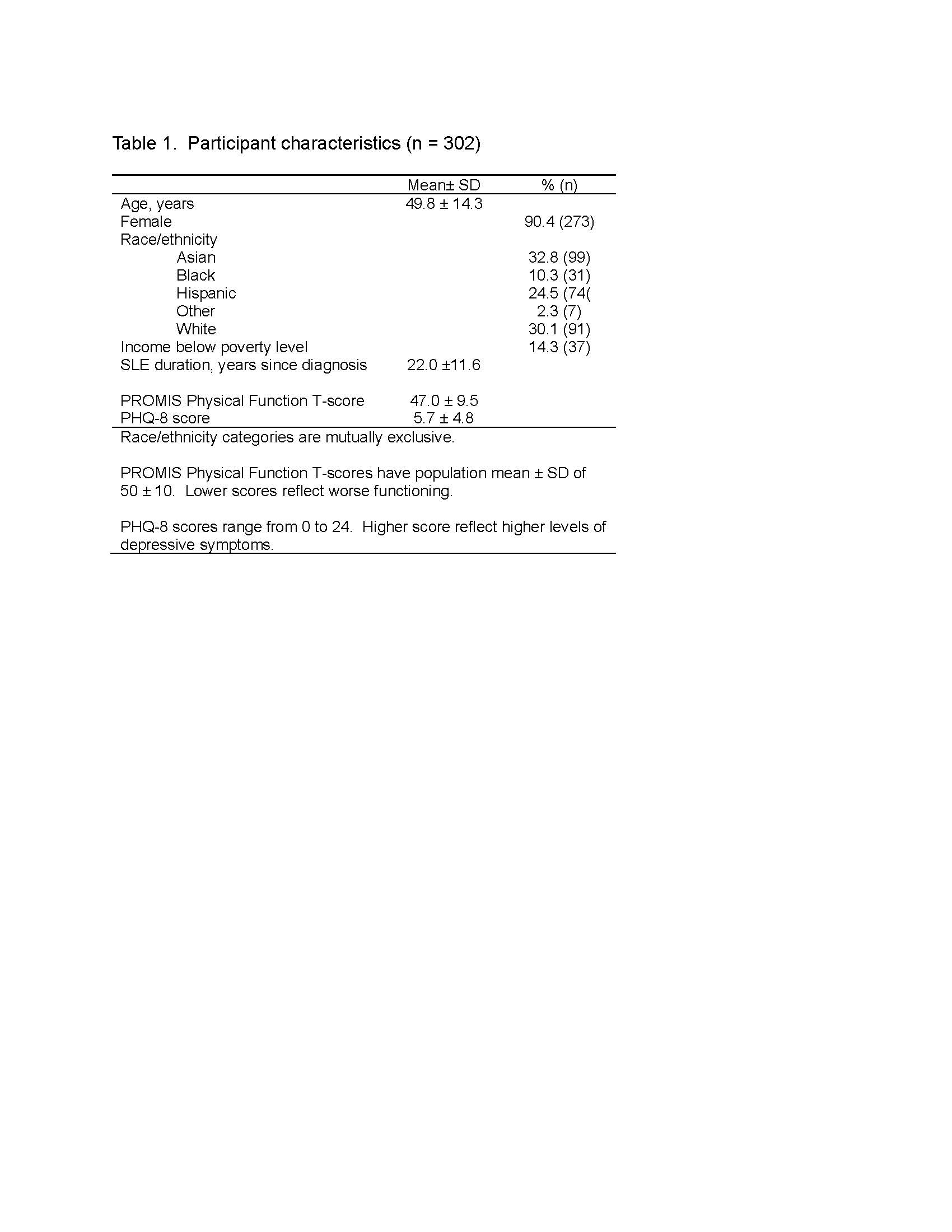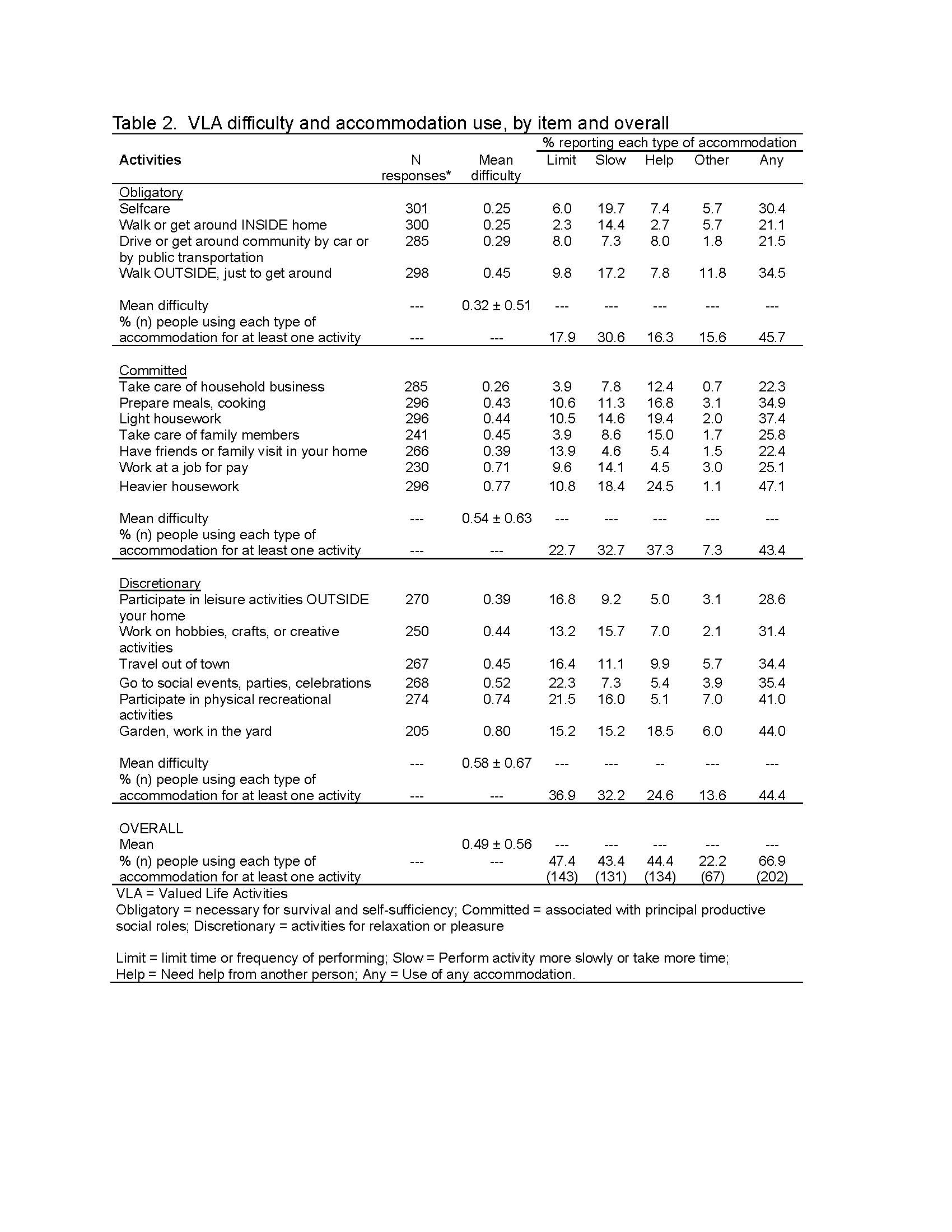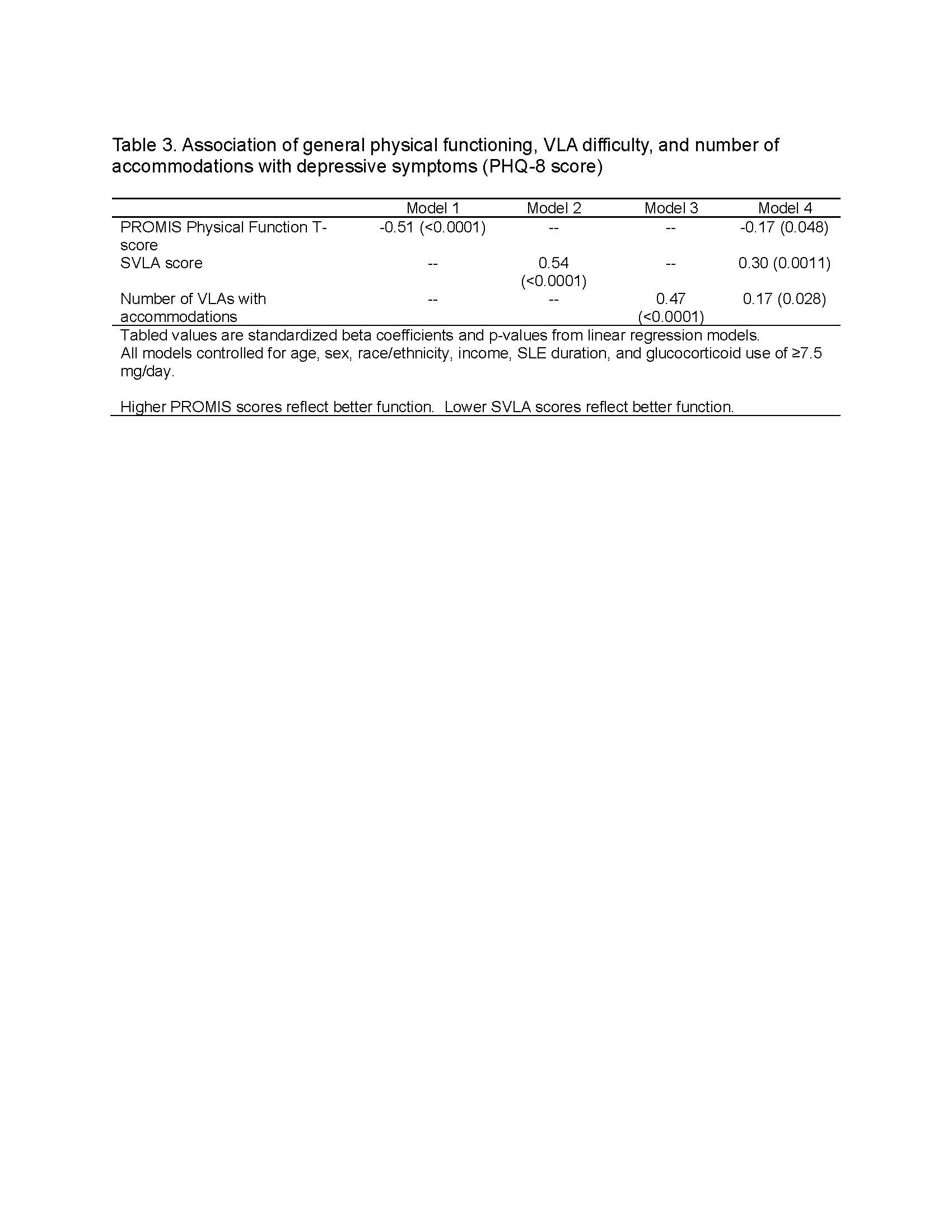Session Information
Session Type: Poster Session A
Session Time: 10:30AM-12:30PM
Background/Purpose: Physical functioning (PF) is usually assessed generally in SLE rather than as difficulty performing specific activities, and measurements rarely incorporate accommodations (ACCs) that may be used to maintain the ability to perform activities. Research in other conditions has shown that disability in valued life activities (VLAs) is more closely related to depression than is general PF. We examined difficulty in performing VLAs, ACCs used in for VLAs, and the associations of general PF, VLA difficulty, and ACC use with depressive symptoms.
Methods: Data were from Year 7 of the California Lupus Epidemiology Study (CLUES), a longitudinal cohort with physician-confirmed SLE (n=302). General PF was measured with PROMIS Physical Function 10a (PF10). VLA difficulty was measured with the Short Valued Life Activities disability scale (SVLA), in which the difficulty of 17 items in 3 categories (Obligatory [necessary for survival and self-sufficiency], Committed [associated with principal productive roles], and Discretionary [for relaxation or pleasure])1 is rated (0, no difficulty, to 3, unable to perform). Scores are the mean of all rated items. For each item, individuals were also asked if they used any of the following strategies to help perform an activity: Limit the time or the frequency of performing; perform more slowly or take more time; need help from another person; or any other changes or accommodations. Patient Health Questionnaire (PHQ)-8 assessed depressive symptoms. Mean difficulty and ACC use for each VLA, as well as for activity types and overall, were tabulated. Linear regression assessed associations of PF10, VLA difficulty, and ACC use with PHQ-8 individually and concurrently in unadjusted and adjusted (age, sex, race, income, disease duration, glucocorticoid use≥7.5 mg/day) models.
Results: Cohort characteristics are shown in Table 1. The overall SVLA score was 0.49 ± 0.56. Difficulty ratings were generally higher for Committed and Discretionary activities than for Obligatory activities (Table 2). At least 1 in 5 used some type of ACC for each VLA. Respondents were more likely to limit Discretionary activities than other types of activities and more likely to need help for Committed activities. PF10, SVLA, and ACCs were each significantly associated with depressive symptoms in individual and combined models (Table 3). However, SVLA had a stronger association with depression than PF10 or ACCs in concurrent models.
Conclusion: Difficulties performing VLAs is common among people with SLE, and most used at least one ACC. Patterns of ACCs suggest that people may be more likely to limit performance of Discretionary activities and seek help for Committed activities. Even controlling for general PF, VLA difficulty is strongly associated with depressive symptoms, suggesting the important role of maintaining VLAs to psychological well-being. Even though ACC use may allow individuals to maintain VLAs, greater use of ACCs was also associated with depressive symptoms. Findings underscore the importance of helping individuals maintain valued activities even in the presence of functional limitations.
1Verbrugge L, Jette A. Soc Sci Med 1994;38:1-14.
To cite this abstract in AMA style:
Katz P, Plantinga L, Dall'Era M, Barbour K, Greenlund K, Yazdany J. Association of General Physical Functioning, Valued Life Activity (VLA) Disability, and Use of Accommodations with Depressive Symptoms Among Individuals with Systemic Lupus Erythematosus (SLE) [abstract]. Arthritis Rheumatol. 2024; 76 (suppl 9). https://acrabstracts.org/abstract/association-of-general-physical-functioning-valued-life-activity-vla-disability-and-use-of-accommodations-with-depressive-symptoms-among-individuals-with-systemic-lupus-erythematosus-sle/. Accessed .« Back to ACR Convergence 2024
ACR Meeting Abstracts - https://acrabstracts.org/abstract/association-of-general-physical-functioning-valued-life-activity-vla-disability-and-use-of-accommodations-with-depressive-symptoms-among-individuals-with-systemic-lupus-erythematosus-sle/



